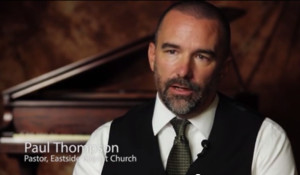I’m no mathematician.
The smart thinking of Tim Challies explains the matter of social media algorithms.
Every time I learn how to get a blog post to get more traffic I learn that new algorithms are being unleashed and everything I thought I knew is now outdated. That’s the way a user of a product works and the smart guys producing the products are more than just a step or two ahead of me.
Challies, who writes with a much wider scope than I do, makes a strong argument about the old fashioned way we used to get things off of the internet from the guys and sites we want and not what the algorithm building guys want their customers to see.
As one who produces content to read (I’ve been blogging for nearly 15 years, that’s ancient in internet years) and one who archives sermons to listen to (over 370, and counting) and occasional podcasting series, it is valuable to learn as much as one can about how to share what I’m producing to as many people as possible in how to get content dispersed.
I don’t have any aspirations to cash in on any content I produce related to my ministry of the word and so I also realize I have to rely on word of mouth and people who intentionally come looking for things I post here and on Sermon Audio (and YouTube).
I don’t fault anyone producing platforms that many people use such as Facebook, Twitter, Instagram, YouTube, etc. They do what they do for the reasons they do it. I try to take advantage of all platforms to disperse content and I understand that’s the way it is.
Tim Challies, in his post this morning, makes a strong case for the consumer of information to stay in control of the content we read by actually subscribing to those sources we want to read. If you use social media to be the primary source of your news you should expect them to give you what they want you to read. If you want to decide what you read, then you need to act the part of curator, as Challies puts it.
So, today, I’m inviting you to consider a few things to help me.
- Subscribe to this news feed to get a new email when I produce a new post (click on that “Follow” button on the lower right of the screen.)
- Subscribe to SermonAudio feed https://www.sermonaudio.com/thebridge
- Follow my Public Figure Facebook Page: https://www.facebook.com/PastorPaulThompson/
- Follow my Twitter Feed: https://twitter.com/TwinFallsPaul
- Follow my YouTube channel: https://www.youtube.com/channel/UCAhExzbgiDz3A99ci0S6WyA?view_as=subscriber
- Share any posts or sermons on your social media outlets.
- I write a regular column in the Twin Falls Times News (magicvalley.com). My ability to continue is largely on feedback the Times News gets on the column I write. The best way to communicate this to them is to share links directly to the Times News. Sharing and liking those columns goes a long way in telling them that people read them. (I don’t write for pay for the Times News, it is at their request and I’ve been pleased to do so for the past 7 years.)
Thank you for reading and helping spread the “news”.

